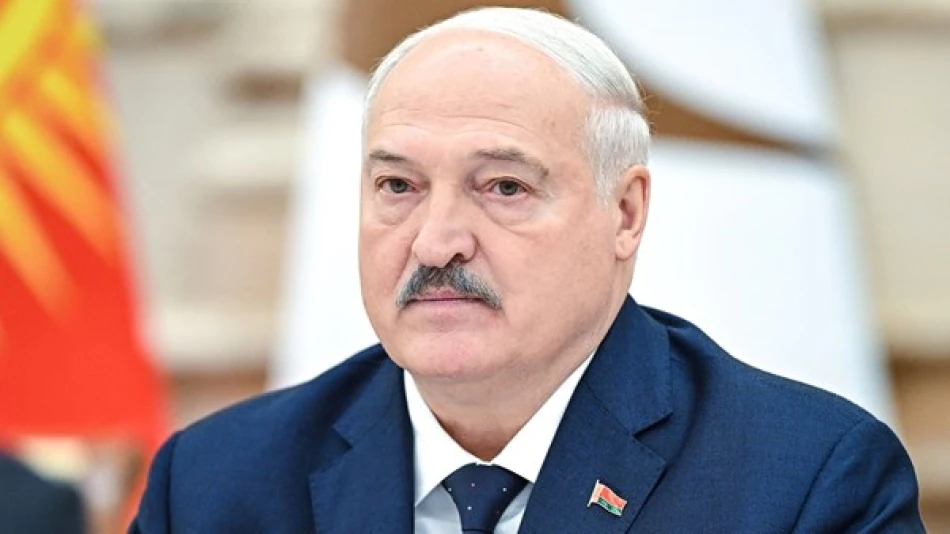
Lukashenko Reveals Stance on Upcoming Belarusian Presidential Election
Lukashenko Signals End of 36-Year Rule as Geopolitical Winds Shift in Eastern Europe
Belarus President Alexander Lukashenko announced he will not seek re-election after his current term ends in 2030, potentially closing the chapter on one of Europe's longest-serving authorships. The 70-year-old leader's surprise declaration, made during a rare interview with American media, comes as shifting US-Russia dynamics under Donald Trump's presidency appear to be reshaping Eastern European politics.
The End of an Era in Minsk
Lukashenko's statement marks a historic turning point for Belarus, where he has ruled with an iron fist since 1994. "No, I do not intend to do that," he told Time magazine via video link from Minsk when asked about seeking another term. His current mandate, secured in January's contested election, runs until 2030.
The timing of this announcement is particularly striking given Belarus's recent history of mass protests following the disputed 2020 election, which saw opposition leader Sviatlana Tsikhanouskaya flee to Lithuania amid a brutal government crackdown. Lukashenko's grip on power appeared unshakeable then, making his voluntary exit pledge all the more significant.
Strategic Positioning Amid Trump's Return
The interview with American media represents a calculated diplomatic move, signaling potential rapprochement with Washington as Trump prepares to meet Vladimir Putin to discuss ending the Ukraine conflict. This marks a stark departure from Lukashenko's previous isolation from Western media and suggests Belarus may be positioning itself for a post-conflict realignment.
Lukashenko's comments about his successor needing to avoid abandoning "everything at once" reveal his concerns about maintaining Belarus's delicate balance between Russian influence and national sovereignty. This echoes similar transitions in other post-Soviet states, where abrupt policy shifts have led to instability.
Implications for Regional Power Dynamics
For investors and regional analysts, Lukashenko's eventual departure could unlock significant opportunities in one of Europe's last isolated markets. Belarus possesses substantial industrial capacity, a skilled workforce, and strategic location between Russia and the EU, but has remained largely cut off from Western investment due to sanctions and political instability.
The announcement also raises questions about Russia's western buffer zone. Putin has relied on Belarus as a loyal ally and strategic military platform, particularly during the Ukraine conflict. A leadership transition in Minsk could potentially alter this dynamic, especially if it coincides with any Ukraine peace settlement.
The Succession Challenge
Unlike smooth transitions seen in Singapore or the UAE, where succession planning occurs within established frameworks, Belarus faces the challenge of replacing a personalized authoritarian system. Lukashenko's warning against rapid change suggests he may attempt to influence successor selection or maintain behind-the-scenes control, similar to patterns observed in Kazakhstan after Nursultan Nazarbayev's departure.
The next six years will likely see increased maneuvering among potential successors, while opposition forces in exile may view this as an opportunity to re-engage with Belarusian politics. How this transition unfolds will significantly impact regional stability and determine whether Belarus moves toward greater integration with Russia or seeks a more independent path.
Most Viewed News

 Layla Al Mansoori
Layla Al Mansoori






